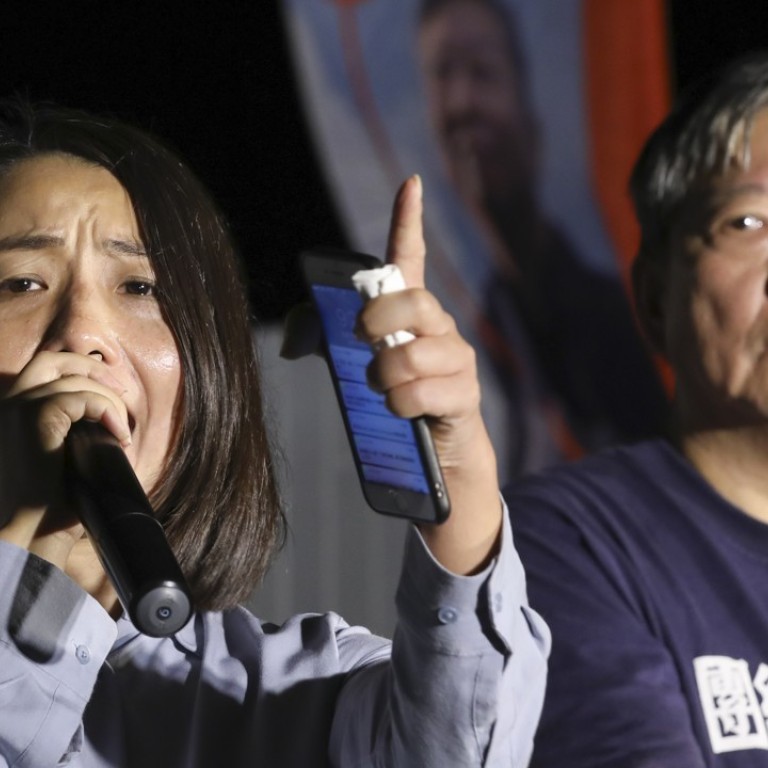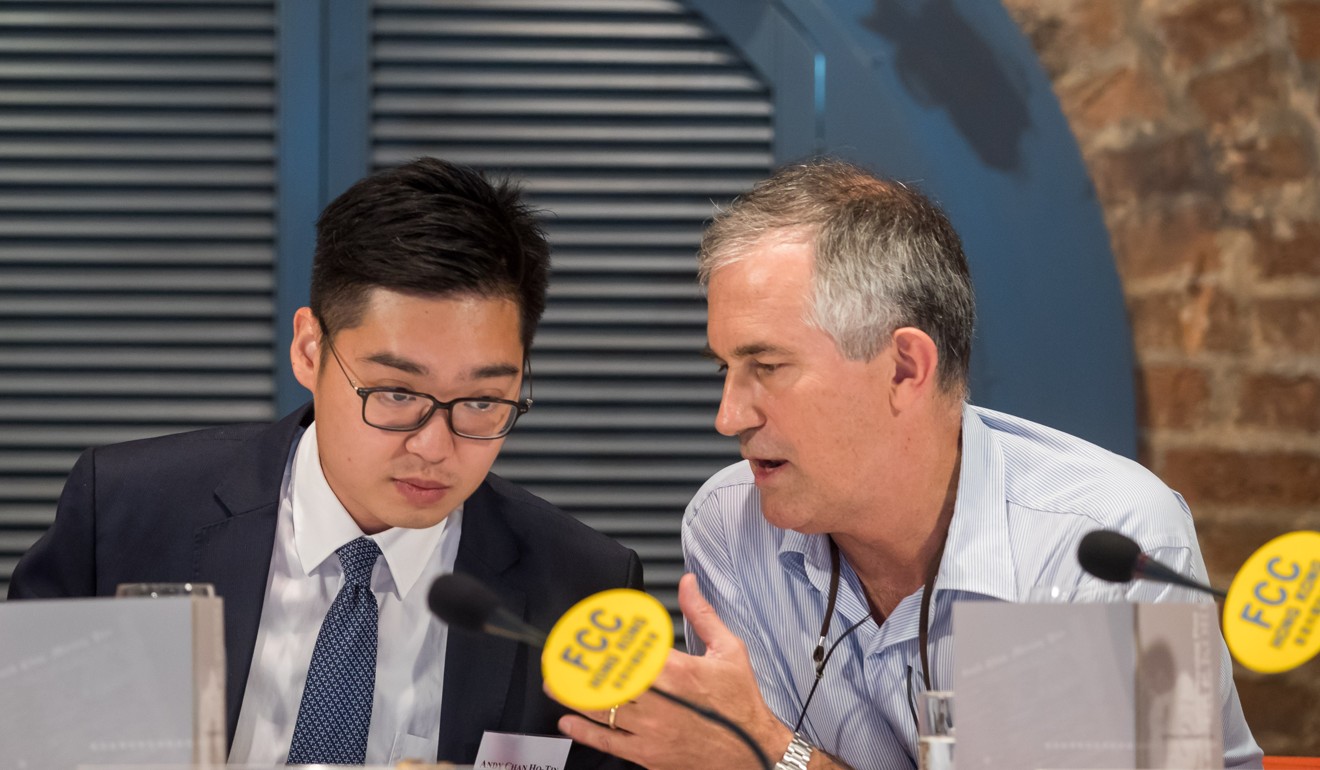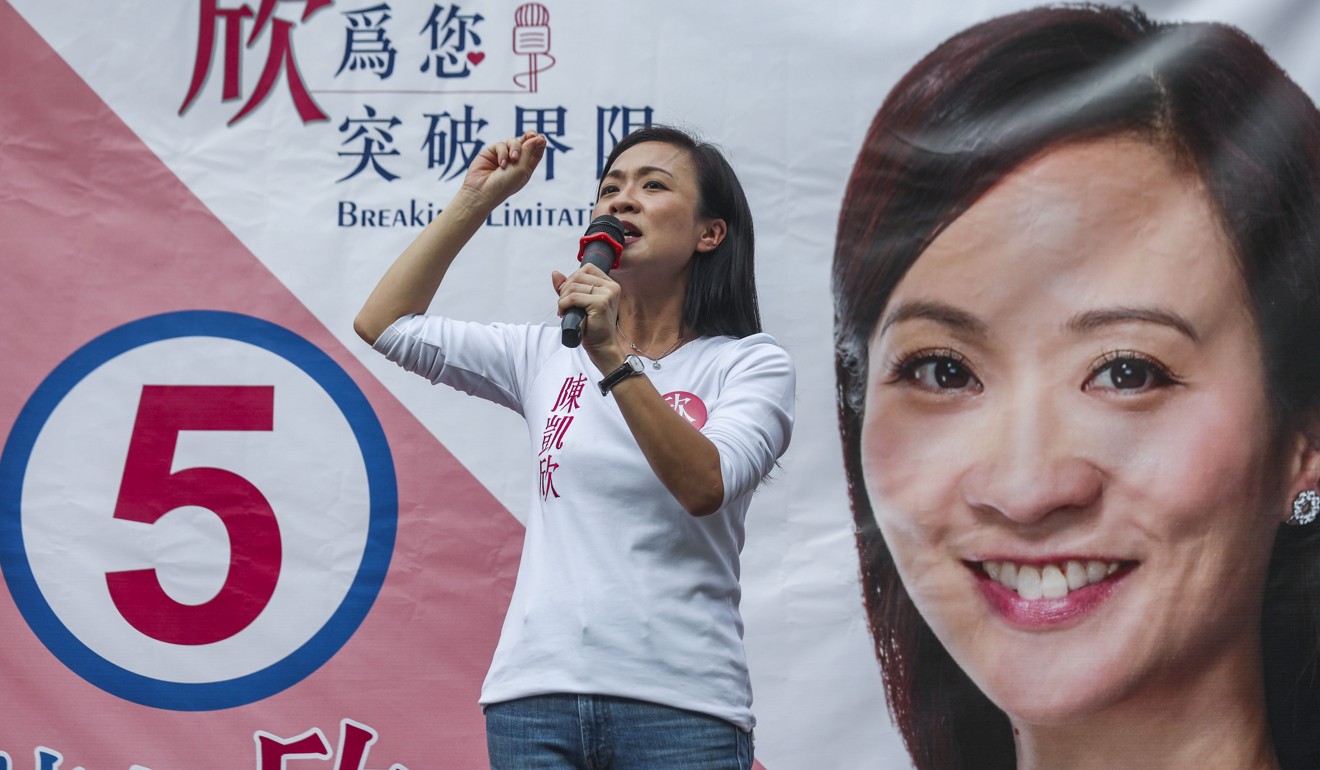
Rough ride for Hong Kong pan-dems in Kowloon West by-election amid ‘split votes and fight to appeal to younger base’
- Pro-establishment candidate Chan Hoi-yan appears to be the one to beat in poll
- ‘Fragmentation’ of opposition bloc from infighting could give voters a bad impression
The Kowloon West poll on November 25 will see two veteran pan-democrats running against a former journalist endorsed by the pro-establishment camp, with another two lesser-known hopefuls vying for a spot.
Ousted lawmaker urges unity as by-election set for November 25
Labour Party stalwart Lee Cheuk-yan, 61, stepped forward to replace her, but erstwhile pan-democrat Frederick Fung Kin-kee, 65, threw his hat into the ring as well.
Fung quit the grass-roots Hong Kong Association for Democracy and People’s Livelihood (ADPL) which he co-founded after a falling out with fellow veterans because he was not their top choice for a previous by-election in March.
Lau by-election ban not necessarily permanent, Rita Fan says
He and the ADPL have deep roots with Kowloon West voters who returned him as a lawmaker four times between 2000 and 2016. Fung will contest the coming by-election as an independent.
Analysts do not expect the other two candidates, IT worker Ng Dick-hay, 51, and independent Judy Tzeng Li-wen, 50, to make a big impression on voters because they are not endorsed by either camp.
Political commentator Chung Kim-wah said Fung’s entry had “spoiled” the pan-democrats’ campaign. “If they were unified and supported only one candidate, they may have stood a chance,” the Polytechnic University assistant professor said.
If they were unified and supported only one candidate, they may have stood a chance
He pointed out that the pro-establishment camp did well in the 2016 Legco elections by concentrating votes on its two candidates in Kowloon West, and both were elected. The pan-democrats endorsed four candidates who were elected.
Chinese University political scientist Ivan Choy Chi-keung said having Fung and Lee on the ballot paper will split the vote of the camp’s supporters.
He also did not think unionist Lee could attract a wide spectrum of voters in Kowloon West, which has a diverse electorate that includes better-off voters in areas like Tsim Sha Tsui.
“A middle-class candidate will find it easier to attract more voters,” Choy said.
Chung also questioned if Lee would be able to win over all of Lau’s supporters, whom he said were younger and might favour more radical political ideals, such as calls for self-determination.
Lee was confident he could appeal to all voters, saying the election ban on Lau and the government’s recent move to effectively expel British journalist Victor Mallet were issues that fired up young people.

“It is a cause that could unite 99 per cent of people,” Lee said. “Both middle-class and low-income voters are worried that taxpayers’ money would be wasted by the government in a way that would affect social welfare, medical and education services in the long run.
But analysts said the infighting between Fung and the other pan-democrats could cripple the camp’s chances.
Fung had wanted the pan-democrats to decide Lau’s replacement as Kowloon West candidate through a primary race, but his request was rejected. After he decided to contest the by-election, he was criticised by a number of pan-democrats who wanted him to withdraw.
Professor Lau Siu-kai, vice-chairman of the Chinese Association of Hong Kong and Macau Studies, a semi-official think tank, said the fallout showed “fragmentation” in the pan-democratic camp.
“Fung has always had differences with the pan-democrats,” Lau said, adding that the candidate was also more willing than others in his camp to communicate with the central government.
Chung said the bloc’s bickering had given younger people a bad impression, and some of them may decide not to vote at all.

All of this has made pro-establishment candidate Chan Hoi-yan, 40, appear to be the one to beat in the by-election.
The former television anchor launched a crowdfunding drive to fund her campaign and raised more than HK$250,000 from about 2,200 people as of last Saturday.
Chung noted that in the lead-up to the poll, Chan’s campaign has become less aggressive, and a giant billboard featuring her outside the Cross-Harbour Tunnel in Hung Hom in August was now gone.
“There is no need for Chan to go all out,” Chung said.
Although Chan lacks district connections, Lau Siu-kai expected big names in the pro-establishment camp to canvass for her closer to election day.
Billboard outside tunnel sparks controversy in run-up to Legco by-election
Chan was political assistant to former health minister Ko Wing-man before stepping down in 2017.
The by-election has been branded by the pan-democrats as a battle to reclaim their veto power in the Legco geographic constituency.
Changes to the Legco rule book require split voting, meaning there must be majority support from both the functional and geographical constituencies.
The pan-democratic camp, with 16 lawmakers in the geographic constituency, is one down compared to the pro-establishment bloc.
The pan-democrats must win the coming by-election if they want to reclaim their power to veto further changes to the rule book.
Additional reporting by Jeffie Lam

